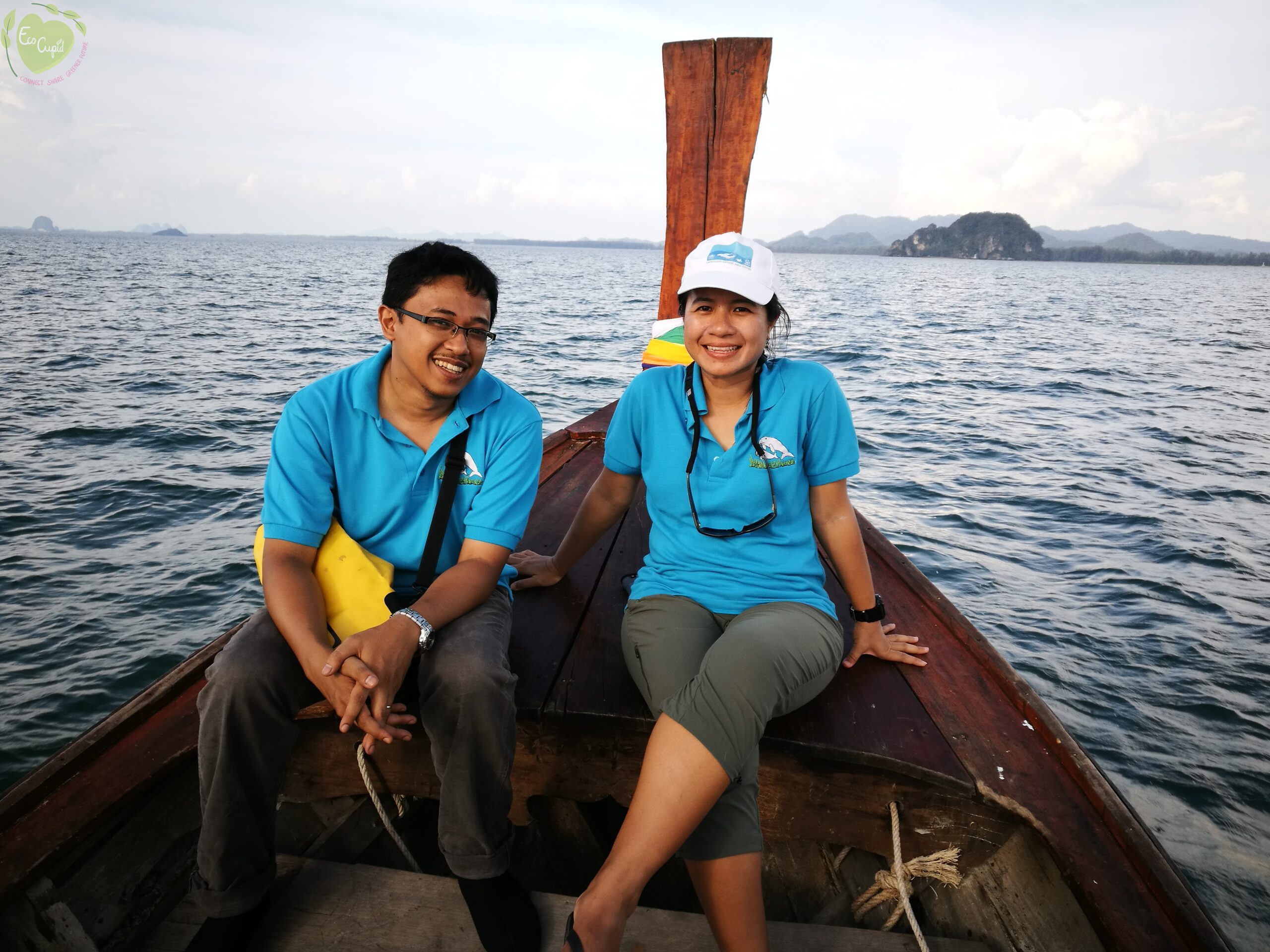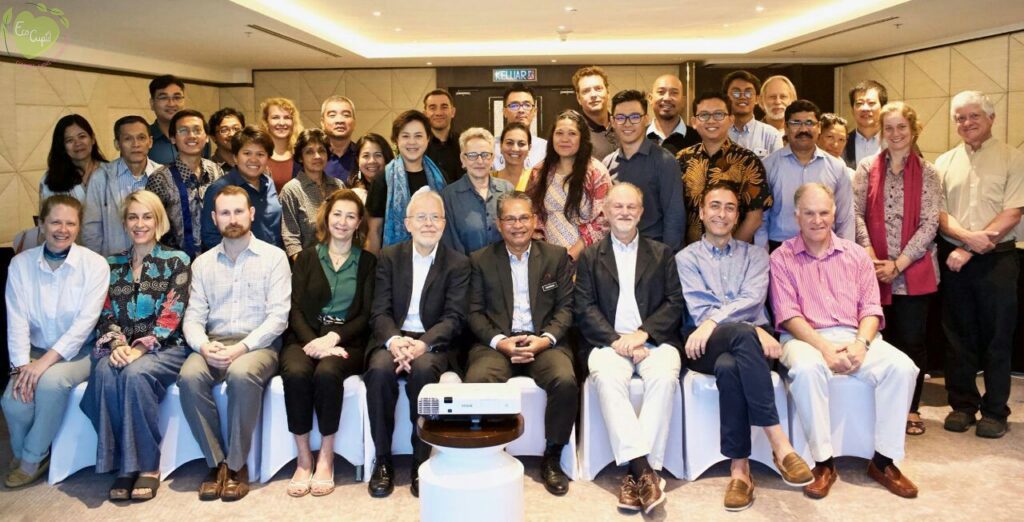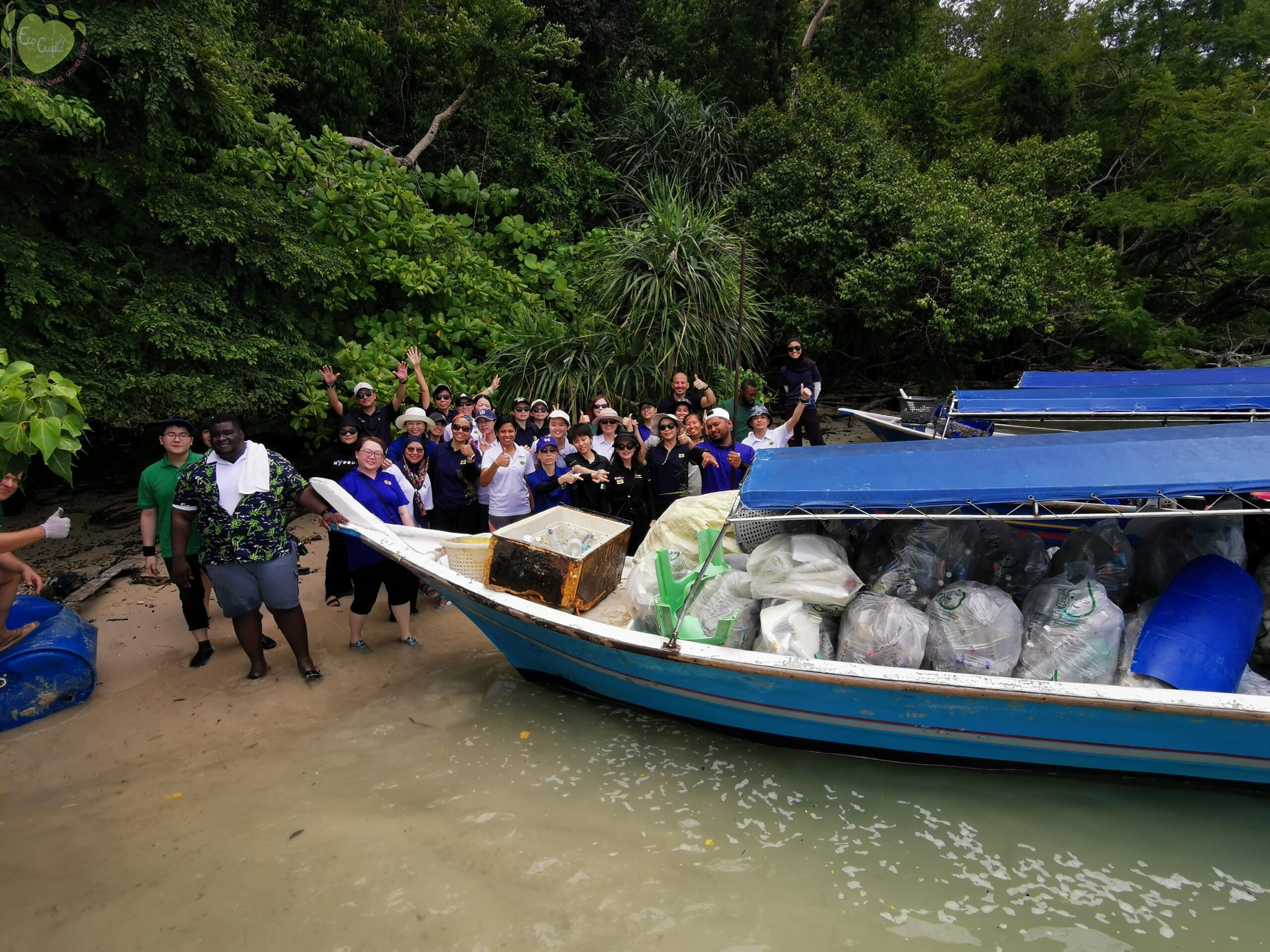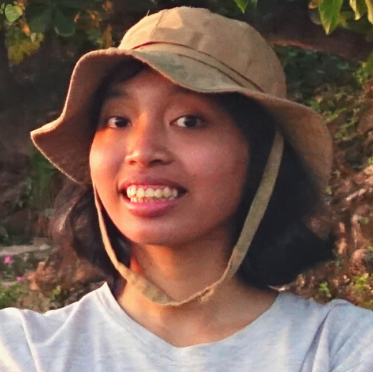Eco-Heroes
MareCet: Transforming Passion into Action for Marine Mammal Conservation
13 June 2024
By Dia Marganita
MareCet is Malaysia’s first and only NGO dedicated to researching and conserving marine mammals.
The Earth is called the blue planet for one obvious reason — its surface is mostly covered by the ocean. With such a vast area, the ocean has become the home of up to one million different species, including cetaceans. They are also known as aquatic mammals that contain the scientific grouping of whales, dolphins, and porpoises. Cetaceans are prominent for their intelligence and complex social behavior, while some are for their enormous size and vast migration ranges.
Unfortunately, most cetaceans are threatened with extinction and many more remain understudied.
Conserving cetaceans, especially within one specific region or country, becomes challenging because their migration ranges transcend borders. The responsibility then falls upon countries whose territorial waters overlap with migration routes.

From Childhood Dream to Establishing an NGO
Back in the 90s, a Malaysian teenager named Louisa Shobhini Ponnampalam dreamed of working with marine mammals. However, at that time, there were no opportunities for her to volunteer or explore more on the subject in Malaysia. Several times, she was unsure if her passion was just a phase or something she wanted to pursue for the rest of her life.
Fast forward, she successfully achieved her dream and became a cetacean ecologist — now known as Dr. Louisa Ponnampalam — focusing on cetacean research in her home country, Malaysia. Although Dr. Louisa enjoyed all her research, she felt the need for more fulfillment in her work and to find a way to make her research matter in the real world.
Reflecting on her dissatisfaction and the ongoing challenge of cetacean conservation, Dr. Louisa realized that conserving cetaceans needs more than just scientific research — it also needs public engagement to push for policies. People will not engage nor care about conserving cetacean if they have little to no knowledge of it, and Dr. Louisa earnestly wishes to change this. During her journey, Dr. Louisa made a lifelong friend — Fairul Izmal Jamal Hisne — who shared the same frustration that they couldn’t go beyond their current job scopes at the time.

Later, in 2012, they co-founded MareCet (pronounced ma-rei-set) to research and advocate for the conservation of marine mammals and their habitats in Malaysia. MareCet is the first and remains Malaysia’s only marine mammal conservation and research non-governmental organization (NGO). Until now, Dr. Louisa has been dedicated to marine mammal research and conservation efforts in Malaysia, including educational outreach activities and policy advocacy — something she realizes she is truly passionate about.
MareCet's Four Pillars of Success
MareCet was established based on four pillars: scientific research, educational outreach, capacity building, and policy advocacy.
“Essentially, we want [MareCet] to be an all-inclusive, very comprehensive and holistic organization that does science, promotes conservation, and also builds local capacity for people to spread the seeds, hoping that it creates a tsunami effect of good,” said Dr. Louisa.
Firstly, scientific research is where MareCet began and MareCet has conducted 5 research projects across Peninsular Malaysia, focusing on cetaceans such as dolphins, porpoises, and whales, as well as dugongs (not a cetacean), and also mitigating bycatch (accidental entanglement) incidents due to fishing. These research projects are conducted to gain data to understand better their ecology and threats to support conservation efforts’ development.
MareCet’s research findings support its other pillars, including educational outreach. Dr. Louisa and her team started by bringing marine science to schools and the general public. They provide lectures, workshops, exhibitions, and even field trips to give students and the public experiences to understand better marine mammals and their threats.
Eventually, MareCet took roadshows to the next level by getting a ‘Whale Truck’ to organize the ‘Whales On-The-Wheels’ mobile exhibition. The truck was a mini exhibition for marine education full of kid-friendly marine mammal pictures and displays, which they call ‘bringing the ocean’ to people.
MareCet also provides customizable Marine Excursions where individuals or groups can join the organization’s research or conservation work. Through the Marine Excursions program, MareCet will give a glimpse into the work of marine mammal scientists (or marine biologists) to the general public or families, and infuse it with sustainable living and local culture.
MareCet’s third pillar is capacity building. As a registered NGO, MareCet has offered numerous vacancies that include volunteers, internships, and full-time positions to support their research and educational outreach programs. In addition, MareCet invites any individual to contribute as a citizen scientist by reporting marine mammal sightings in Malaysia. Sightings can be submitted through a simple online form and MareCet will use this information to assess existing marine mammal populations in Malaysia for their research and policy advocacies.
The fourth pillar is policy advocacy. MareCet firmly believes in scientific data decision-making and strives to derive its research findings not just for its educational programs, but also into policy frameworks and management plans for marine mammal conservation. Through policy advocacy, MareCet has been advocating for marine mammal conservation at the state level and, even at, the multinational level.
Diving into MareCet's Ocean of Impact
MareCet combines expert knowledge in marine conservation and passionate social change-making to establish itself as a strong, credible stakeholder in Malaysia’s marine conservation policies. Since 2012, MareCet has partnered with regional and international stakeholders, receiving 5.5 million Malaysian Ringgit in research and NGO grants to support marine conservation programs. It has also established three sites spanning 6,244 square kilometers that are recognized as Important Marine Mammal Areas (IMMAs) by the International Union for Conservation of Nature (IUCN). Although this designation does not provide legal protection for these areas, MareCet can leverage this status to push for better management and conservation action on the ground.

As of 2023, MareCet has reached more than 20,000 people in the ‘Whales On-The-Wheels’ tours and 8,000 children through ‘Sea, Science, and Schools’ and public marine education programs. The organization has also presented to 6,000 people through high-impact stage presentations, ranging from local to international events. Since its establishment, MareCet has been directly involved in developing 10 international and local policy instruments that are related to marine conservation.
Moreover, as a platform for learning and contributing to marine mammal research and conservation to the general public, MareCet has hosted 334 volunteers in its several research field trips and outreach activities through the years. Almost a fourth of the volunteers have volunteered more than once, and around 15% have pursued a career in the marine science and/or conservation field, demonstrating MareCet’s success as a platform for experiencing and channeling people’s interests and passion in marine research and conservation.

Weathering the Financial Tides and Public Ignorance Storm
At first, MareCet relied heavily on research grants to cover heavy operational costs, such as transportation and equipment. But Dr. Louisa and her team soon realized this was not a sustainable financial model as the grants rarely pay for overheads and staff salaries.
Since then, MareCet has diversified its income through multiple sources: grants, public donations, merchandise sales, corporate partnerships, and Marine Excursion programs. These sources of income have helped MareCet to continue and run its programs successfully over the years.

Apart from financial challenges, there is also a significant problem that needs to be addressed: working in conservation is often not taken seriously by society in general. Many people do not consider conservation work as important as other common corporate industries. Dr. Louisa shared that people often assume conservationists should work for free or very little money because it is their passion. Hence, Dr. Louisa and her colleagues often face challenges in getting the appropriate compensation for their work.
“Passion doesn’t pay the bills. I could be as passionate as I want, but no currency of passion will help me pay any kind of bills or pay my staff salaries,” shared Dr. Louisa.
Navigating Marine Sustainability for a Better Future
Dr. Louisa looks back on her journey with a mix of gratitude, determination, and a sense of accomplishment. From her teenage years — when the dream of working with marine mammals seemed distant due to the lack of opportunities — to the founding of MareCet in 2012, her path has been marked by challenges and achievements. Despite uncertainties and setbacks, Dr. Louisa remained committed to marine sustainability, fueled by her passion for marine mammals and the ocean.
As MareCet celebrates its journey, Dr. Louisa takes pride in how far the organization has come and the wonderful team she’s built. What began as a small initiative has evolved into a multifaceted NGO that conducts scientific research, engages the public in educational outreach, builds local capacity, and advocates for policy change. Dr. Louisa sees MareCet as a testament to the power of collective action and the importance of perseverance in the face of adversity. While some challenges remain, she is confident in MareCet’s ability to continue making a difference in marine mammal conservation. As she looks to the future, Dr. Louisa is filled with hope and determination, knowing that MareCet’s work is contributing to a healthier and more sustainable ocean for generations to come.
Dr. Louisa has a message for ASEAN youths out there:
“[Please] be selfish about your future and the kind of future and planet that you want to live in and worry about it. Because if you worry about it and care about how your future is going to look, you will naturally do what it takes to secure a better future for yourself,”.
(Edited by Bryan Yong)
References
Appeltans, Ward, et al. (2012). The magnitude of global marine species diversity. Current Biology 22.23: 2189-2202.
Schipper, J., et al. (2008). The status of the world’s land and marine mammals: diversity, threat, and knowledge. Science, 322(5899), 225-230.
Our featured Eco-Hero
MareCet is Malaysia’s first and only NGO dedicated to researching and conserving marine mammals. Based in Malaysia, MareCet focuses on conducting scientific research, educational outreach, capacity building, and policy advocacy to promote marine sustainability. You can reach out to them at https://www.facebook.com/marecetresearchorganization
This article was produced with support from YSEALI SEEDS for the Future grant 2023.


Dia Marganita
Dia Marganita is a recent graduate majoring in Oceanography from Indonesia. She enjoys taking long walks and playing with stray cats in her free time. She also loves to read, and it motivates her to create stories that can inspire and move people.
